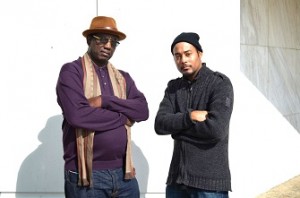At an early age, Williams’s visits to the South to visit extended family made a deep impression. His experiences with segregation, Williams later said, affected how he felt about law enforcement, society, and the government. The violence, fear and inequality facing African-American citizens struck Williams as unfair, and he became determined to do what he could to strike back at the people in power.
For Williams, going to school and following rules weren’t producing the results he wanted to get ahead. So instead, he turned to robbery. Williams had his first encounter with the law at the age of 12, when he robbed a local drug store. He was immediately captured by law enforcement officials, and held in a Bronx youth facility.
The arrest had little affect on Williams, who continued to buck the system. He was kicked out of a string of schools during his youth, and his overwhelmed family eventually shipped him to Florida to live with relatives. The move didn’t change Williams’s behavior, either; he carried out a string of petty robberies in his new environment, and was finally sent back to New York by his frustrated grandmother.
Life of Crime
As soon as he was back with his parents in Queens, Williams was caught yet again for breaking the law. This time, he was given an 18-month juvenile detention sentence. While in the detention center, Williams plotted a successful jailbreak that involved distracting security with an outburst. Upon his escape, he fled over the U.S. border to Canada, where he was almost immediately caught for another attempted robbery.
Williams was sent to Montreal’s Prison de Bordeaux with a stiff sentence. After completing his time, the 17-year-old returned to New York with the intention of living the extravagant lifestyle he felt the country owed him. In order to pay for what he thought were the finer things in life—expensive cars, jewelry, and high-priced houses. He decided to rob federal banks, believing that he was somehow getting revenge on a federal government that he felt ignored the needs of African-Americans.
In 1971, Williams and his band of bank robbers were caught after one of the bandits was arrested on an unrelated charge. In an effort to plea bargain, the robber revealed the identities of Williams and his crew. Williams was indicted and sent to a federal corrections institution in Milan, Michigan, were he was sentenced to a five-year term.

Williams and a group of other inmates were given ultimate freedom during their time at the University of Michigan, where they were expected to study. But because the classes didn’t monitor the prisoners’ attendance, they would skip their daily schedule and instead enter the city, where they again began robbing banks. Using the money from their robberies, they applied for multiple apartments, luxury vehicles, and entertained romantic interests. William’s Michigan crew robbed more than five banks during their time in the program but, because they were already incarcerated, everyone in the education program was immediately removed from the suspect list.
After six months, a prison bus driver grew wise to their suspicious behavior and reported them to the authorities. Williams and his gang were caught. Michigan’s inmate release program was dismantled immediately afterward.
Shortly before Williams’s trial, the prison bus driver who caught the group suddenly refused to give his testimony after claiming he and his family were threatened with violence. The trial was dropped, and Williams completed the rest of his sentence. Upon parole, he immediately returned to robbing federally insured banks.
Heists
Williams, more determined than ever not to get caught by authorities, began training to become a better robber. He assembled several gangs, employing an estimated 20 people at any given time. The group studied police and FBI training tapes, read up on military strategy, regularly attended the firing range, and educated themselves on police weaponry and technology. They would also work out to stay in peak condition, and perform trial runs of the robberies in each other’s apartments. Williams even had a timed exercise to see how quickly each robber could jump over a counter and pull cash out of a register drawer. His heists were typically completed in less than a minute, giving police little or no time to respond.
Most of their robberies went fairly smoothly, but no amount of careful planning could save Williams from his eventual arrest. In June of 1975, a security guard was wounded by a gunshot to the head during one of the crew’s payroll robberies. A car chase ensued, and authorities trapped Williams in a Queens neighborhood. After a volley of fire, Williams was arrested and charged with robbery, assault, and attempted murder.
https://scontent-iad3-1.xx.fbcdn.net/v/t1.0-9/11012595_1017039484987457_1442001005644811941_n.jpg?oh=85e54cba9da1277b1e48504b2629328f&oe=5824D12E
While in prison awaiting sentencing, the bus driver who had refused to testify in his original robbery trial decided to enter the witness protection program in order to testify against Williams. On December 22, 1975, Charles Williams was indicted and sentenced to 25 years in prison.
Less than a month into his sentence, Williams escaped prison again. In a violent shootout, authorities again caught and imprisoned Williams. While incarcerated, Williams continued to conduct business as usual with his crew. From inside, he instructed his gang members on how to rob banks so that they could help him pay for his legal fees. In one particular robbery, however, a member of the group was apprehended. He revealed Williams’s role in the series of robberies. Chaz received yet another prison sentence, adding a grand total of 95 years to his time in jail.

While serving his sentence, Williams returned to formal education. He attained two bachelor’s degrees, including one in business. He also began studying methods for taking on the legal system. After a series of successful appeals, Williams worked his sentence down to 15 years, with seven years of supervised parole.
Upon his release, Williams finally decided to leave his criminal lifestyle behind. He created his own business, Black Hand Entertainment, and created a musical roster that included successful rap and R&B musicians such as 50 cent, Foxy Brown, Grafh and Prinz. Williams currently lives in New York, where he oversees operations at Black Hand. He has also established a prison outreach program to share his story of redemption with pisoners.
Text content used from- http://www.biography.com/people/chaz-williams-493206?page=3

